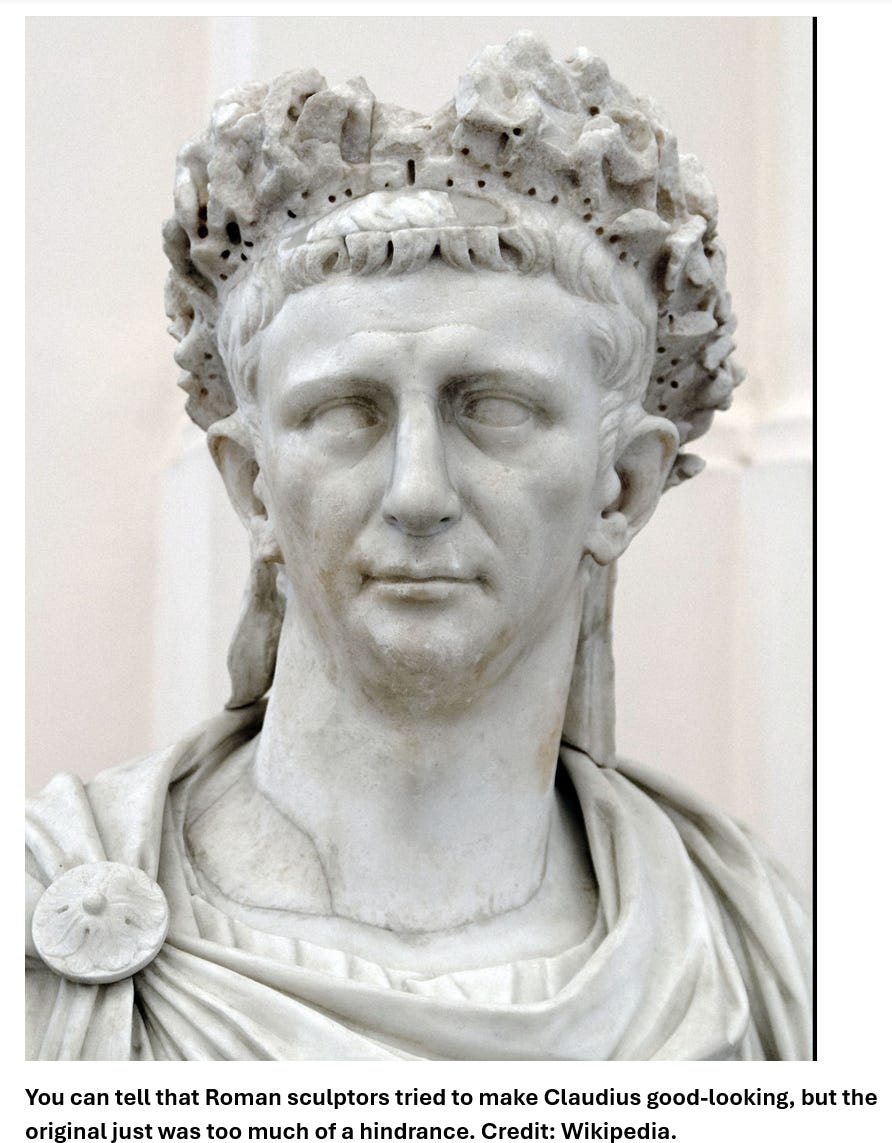Claudius, the Grumpy Professor Who Became Emperor
A History of Mankind (249)
To read previous newsletters in the History of Mankind, which is pretty long, you can click here.
A vegetarian for part of his life due to the influence of his teacher Soton — who was a fashionable combination of stoic and neo-Pythagorean — the Spanish philosopher Seneca spent time in Egypt, where he may have come across, unknowingly, some religiously confused Jews of the Christian persuasion; after that, he became a Roman senator around 37 AD and narrowly survived Caligula’s reign.
Emperor Claudius (r. 41-54 AD) wasn’t much fonder of the talkative Spaniard. After Seneca was caught in a complex palace dispute over sex and influence early in Claudius' reign, the still unsecure emperor – a bit of a philosopher and polymath himself, author of a regrettably lost dictionary of the Etruscan language1 – sent him to exile to Corsica for eight years, giving Seneca time to write some of his best philosophical work.
Seneca later returned the favor by writing a story about Claudius’ adventures on his way to Mt. Olympus after the emperor’s death. Titled “Apocolocyntosis Divi Claudii” (“The ‘Pumpkinification’ of the Deified Claudius”), it recounts that, even though the senate declared that the dead emperor was now a god, the gods on Mt. Olympus begged to differ2.
Keep reading with a 7-day free trial
Subscribe to A History of Mankind to keep reading this post and get 7 days of free access to the full post archives.


